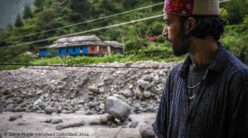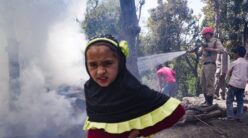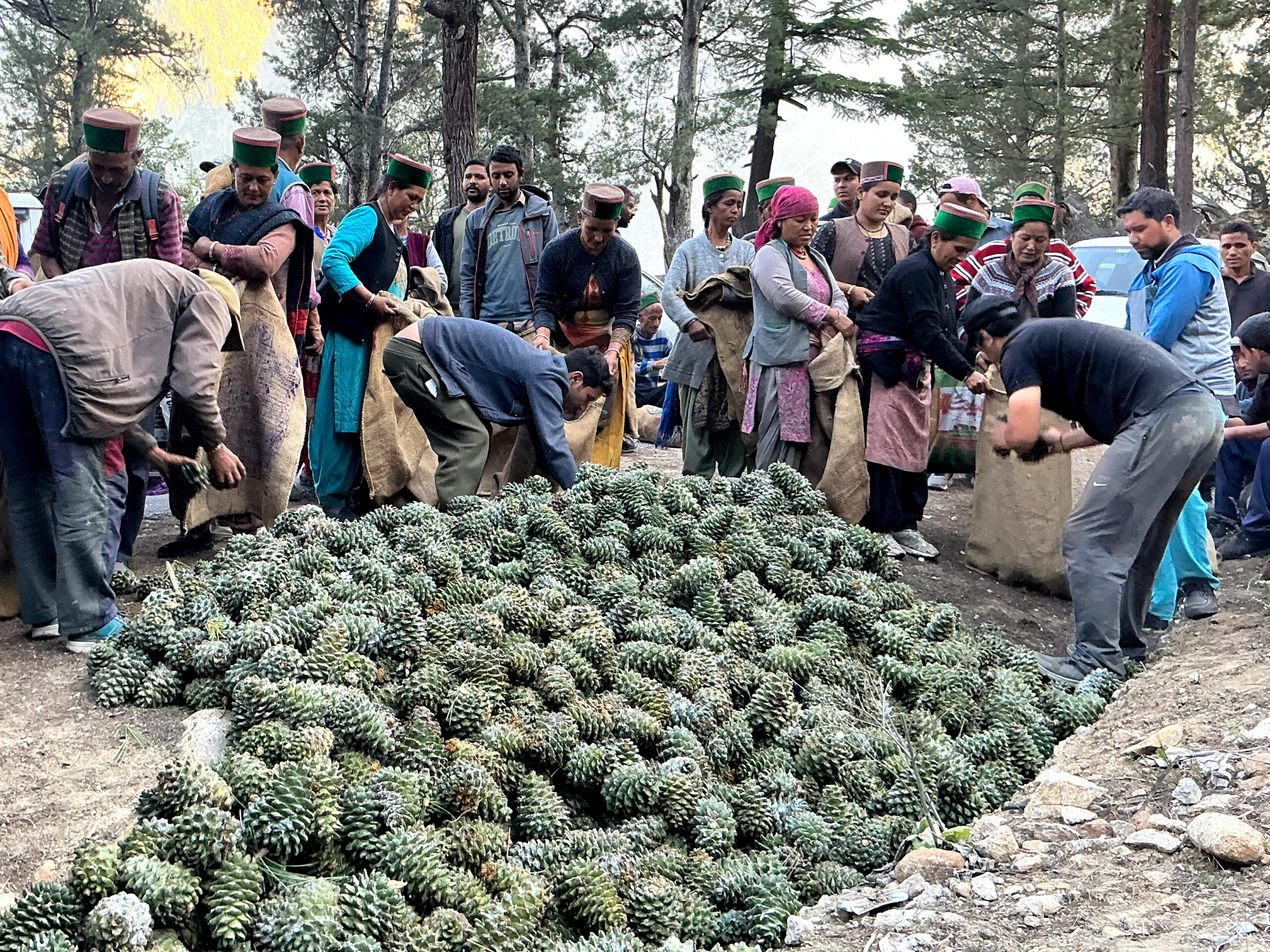A Himalayan village’s struggle to assert its forest rights
Manshi Asher
01 September 2019
Karam Sain led the way through the narrow paths of the temperate forest near the tribal village of Lippa, located in the Kinnaur district of Himachal Pradesh. The cool May air was filled with the scent of dried chilgoza pine cones, which crackled under his surefooted steps.
Sain, whose fellow villagers save his name as CM—short for chief minister, reflecting his leadership role in the community—in their mobile phones, entered the small gompa—Buddhist religious structure—at Dakchompa. Located at an altitude of ten thousand feet, the site is said to house the spirit of the eighth-century Buddhist teacher Padmasambhava, who is revered by the Kanauras, the indigenous people of Kinnaur. The people of Lippa trek even higher up, to a holy lake called Ronnam Sorang, to celebrate the festival of Dakhrain. The Kanauras are a Scheduled Tribe, whose cultural and religious practices are rooted in the worship of animistic deities and ancestral spirits. Over time, these have become intertwined with Buddhism, the predominant religion in upper Kinnaur.
In recent years, Lippa—a topographically fragile region with bare, rocky outcrops and patches of pine and cedar forests—has experienced the impact of rapid climatic changes, with lesser precipitation on average and unexpected heavy rains. Its main habitation is boxed in, with precipitous slopes on both sides and a raging river cutting at the feet of the village. The Pajer khadd—stream—brings millions of tonnes of silt to Lippa’s doorstep year after year, as it floods during the monsoon. Six years ago, even as disastrous floods in Kedarnath made national headlines, many parts of Kinnaur suffered unprecedented rains and loss of property. If it were not for the Kerang stream, which flows from the west to meet the Pajer near Lippa, their habitations would have been buried in a mountain of debris by now………






